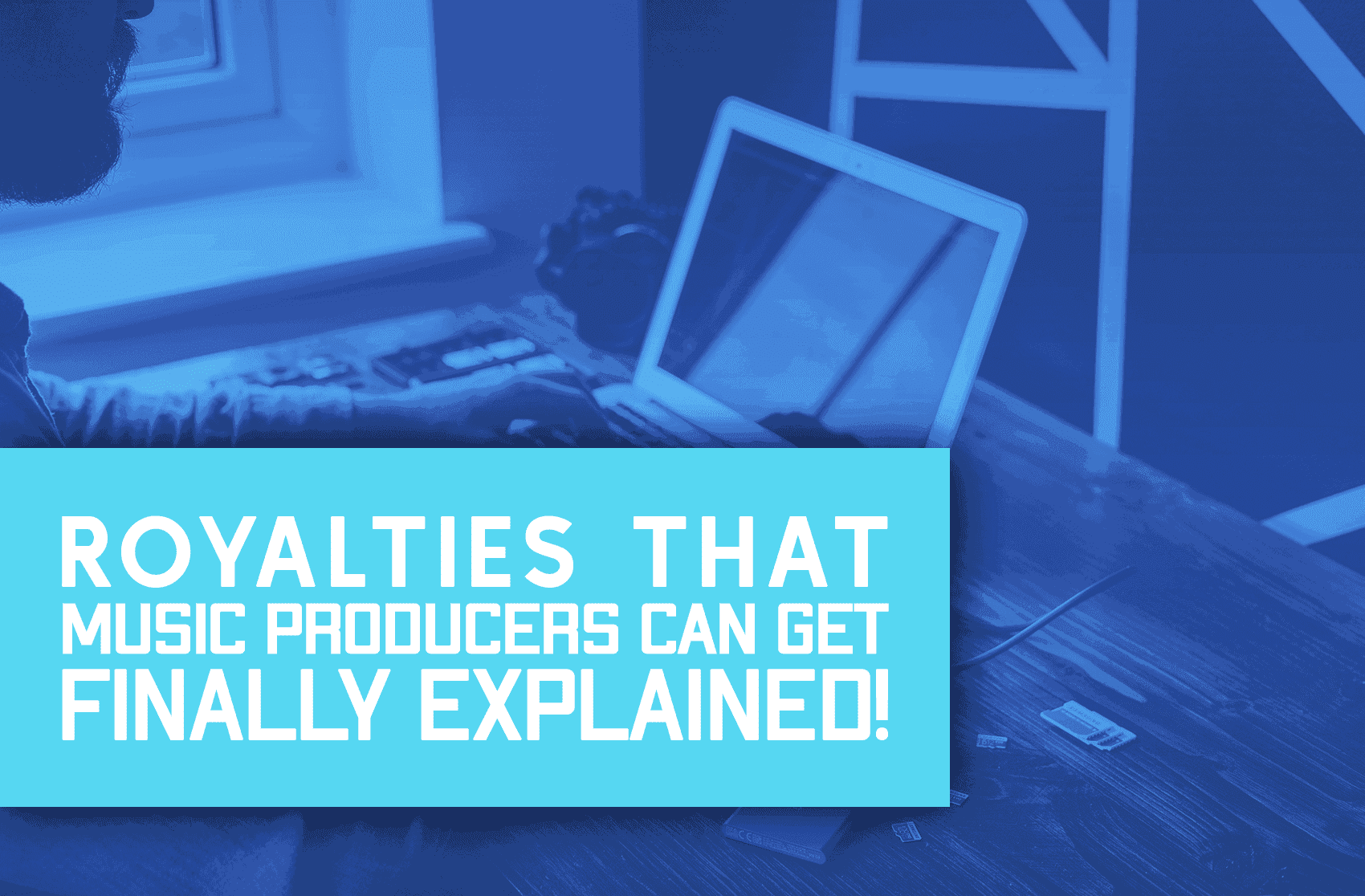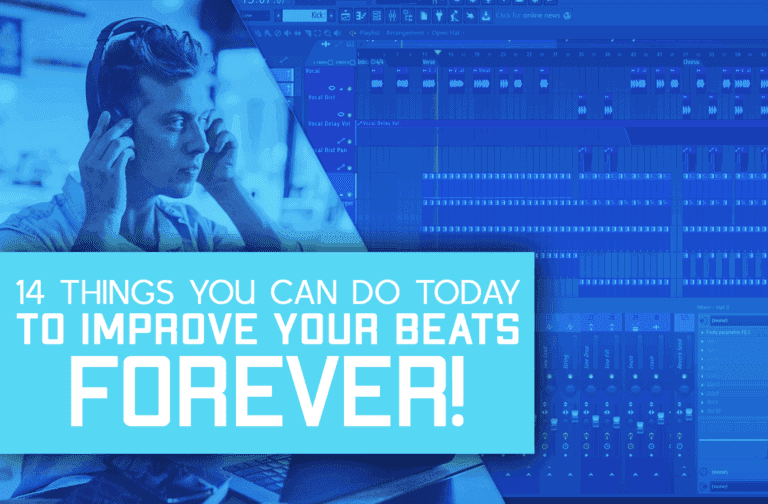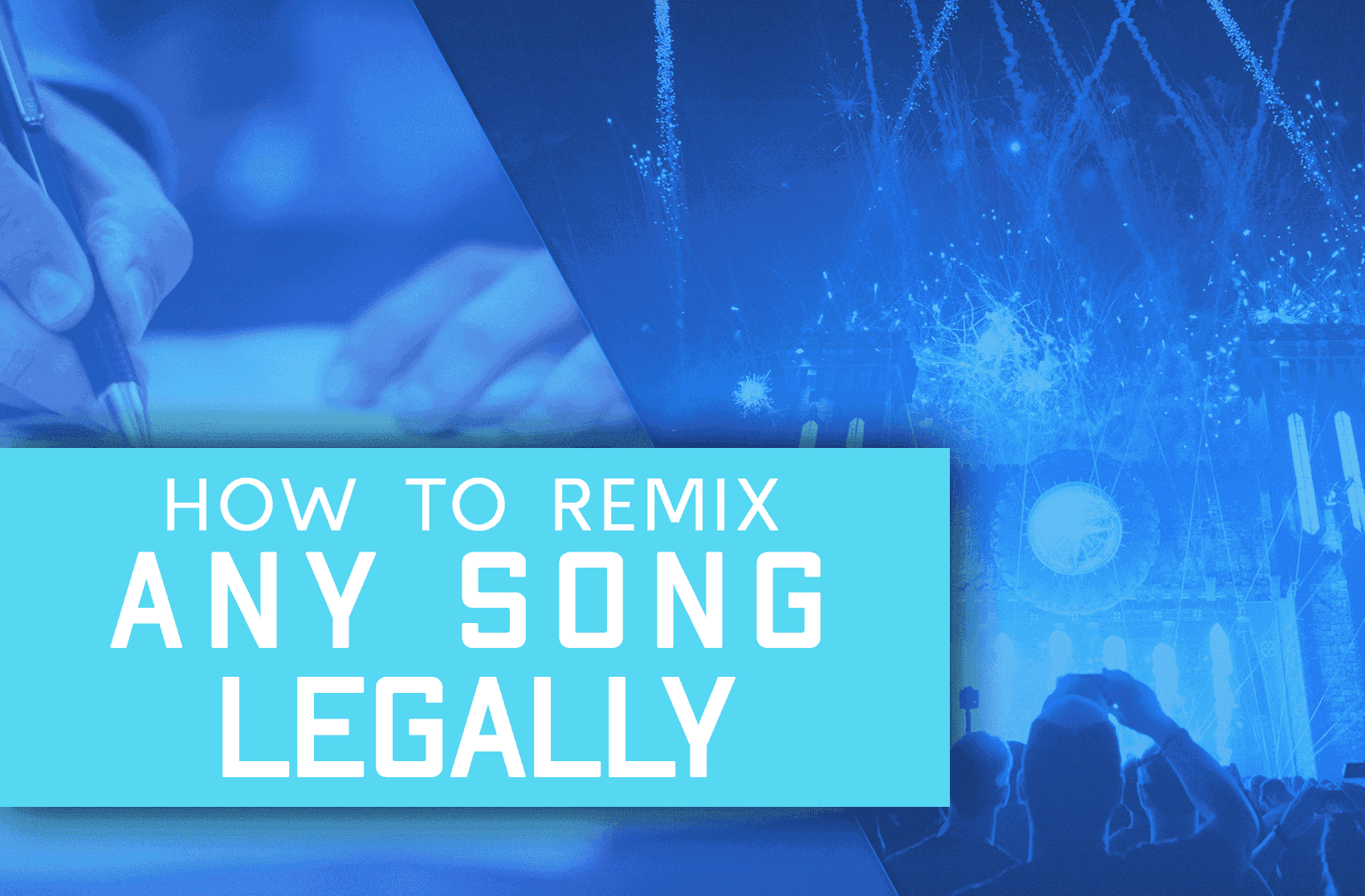Working as a music producer / beat maker can be tough sometimes. The long hours in the studio, and the tremendous efforts can be devastating.
And you might end up feeling a bit overwhelmed. But at least, in the end, you get royalties over your work.
In this article, I’ll cover and explain everything you need to know about musical royalties in the easiest way to understand that I possibly can.
As a Music Producer/Beatmaker, you are entitled to a part of the publishing/songwriting royalties and the “Sound Recording” / “Master” royalties resulting from streams and sales of the recording.
The standard percentage that Producers & Beatmakers get is 50% of the publishing royalties, and 3%-5% of the master royalties.
 Loading…
Loading…What Are Master/Mechanical Royalties?

First of all, it’s important to mention that the “Master” and “Mechanical” royalties both refer to the exact same royalties. They’re two different names of the same thing.
Master royalties refer to a specific final audio recording of a song.
The money you’ll be able to receive from master royalties results from digital streams and sales of the recording you own.
Generally, you should always get 3%-5% of the master royalties, however, there may be some exceptions –
- A certain label might try and buy your royalties from you with a big advance.
- A label may ask you to sign a contract that says that until the album/song sells a certain amount of copies won’t get any royalties so they can get the money they invested back (in such cases you should also get a bigger advance).
What Are Performance/Publishing/Songwriting Royalties?

Notice that “Performance”, “Publishing”, and “Songwriting” royalties all refer to the exact same royalties.
Performance/Publishing/Songwriting royalties belong to the owner of the musical composition. It contains all the lyrics, melodies, chords, rhythms, and any creative part of a song.
These royalties refer to all the income resulting from all the times the song is performed, streamed, recorded, or played in public. This includes radio, television, and any public place like clubs, bars, restaurants, or any other public place where there’s a use of your song.
In order to collect performance royalties, you’ll have to register with a Performance Rights Organization that will negotiate, manage, and monitor the usage of performance licenses. And collect & distribute the royalties to the owners of them.
There are great organizations for this matter, but the most common ones are ASCAP, SESAC, and BMI, which is the most popular one in the US.
What Royalties Can You Get?
As a beatmaker, you are entitled to a part of the publishing/songwriting royalties and the “Sound Recording” / “Master” royalties resulting from streams and sales of the recording.
The standard percentage that beatmakers get is 50% of the publishing royalties, and 3%-5% of the master royalties.
It’s important to acknowledge that the Master copyright is separate from the Songwriting copyright. Therefore, even if someone remakes your beat or loop you’re still entitled to publishing royalties.
Why Is The Master Copyright Separate?
As written above, the reason that the master copyright isn’t included inside the Songwriting copyright is the option to record the same song differently.
Since you can record multiple versions of a single song, there can be a situation when you have to separate the copyrights and give the songwriting copyrights to the writers of the song, and the sound recording copyright to the performer and his crew.
The Master rights usually belong to the artist, the producer, the label, the recording studio, and other affiliates that sincerely helped to the recording/mixing process.
Sometimes, the mixing engineer may require royalties as well, which may lead to you getting less “master” royalties.
Therefore, it’s incredibly important to know about the royalties that mixing engineers can get, and what they need to do to get them as well.
I have actually written a full article where I outlined exactly that topic, and explained what a mixing engineer should to get royalties, and how much royalties he can get. Royalties Mixing Engineers Can Actually Get!
How Much Publishing Royalties Do Producers/Beatmakers Get?
Normally, the producer and the artist split the publishing royalties in half and equally share them, which lets the producer get 50% of the royalties.
However, if you use a loop that isn’t royalty-free, you’ll have to split your cut with the loop maker as well, which will result in you getting 25% of the royalties.
It’s important to acknowledge that the amount of royalties that you’ll get may vary widely depending on the artist you work with.
Major producers today like Metro Boomin and Pi’erre Bourne usually ask for 50% of the publishing royalties, and 3%-5% of the master royalties in addition to a respectfully large advance (2000$ – 5000$).
What Can You Do To Get More Royalties Now?
If you really want to get more royalties now to increase your passive income, there are 3 things you can do.
- Work With Smaller Artists – Smaller artists may not be able to pay you any advance, and most of them aren’t signed to a label at all.
Therefore, there is a bigger cut left over for you, which means you’ll get more royalties.
However, notice that working with smaller artists may cause you to actually lose money even though you’ll get more royalties since 3% – 5% of a song that was properly published through a label would worth much more than 50% of a song that doesn’t get any promotion and streams. - Get A Lawyer – Lawyers may be a bit expensive, but if you get a lawyer that knows his job, he should be able to negotiate with the label and get you a much better percentage.
Even if you get 1 more percentage of the master royalties, it may worth a lot down the road.
However, notice that it’s only recommended to get a lawyer when working with a label that is at least medium. Otherwise, the lawyer would probably cost more than the royalties he’ll be able to get you.
Can You Get More Royalties Overtime?
Absolutely! You can and you should increase your demand for royalties as you get more experienced and familiar among the community.
Even though you may need to settle for a small percentage of royalties at the beginning, you may learn how to negotiate/get a lawyer that will negotiate the royalties for you as you go.
It’s important to acknowledge that the amount of royalties that you’ll get may vary widely depending on the artist you work with.
If you work with a registered artist his label might prefer to pay you a bigger advance in exchange for some or all of your royalties. The more royalties they buy from you, the bigger the advance should be.
However, if you work with a small unregistered artist who can’t afford to pay you an advance you may require a higher percentage of the master royalties.
Are Royalties The Only Way Producers Are Paid?
Absolutely Not! It’s actually really important to acknowledge that royalties may not be the only way you’ll get paid. If you release a song with a registered artist, you should also get an advance that can vary widely between 400$ and 1500$. Sometimes famous or requested producers may even ask for a much higher advance.
Do Loop Makers Get More Royalties?
The short answer – No.
Usually, the loop maker and the beatmaker should split the royalties between them equally.
However, there may be some exceptions –
- A single loop might be created by two people, which may cause the royalties to get divided by three.
- The loop maker might be a lot more familiar and experienced than the beatmaker and require a larger amount of royalties as a result.







